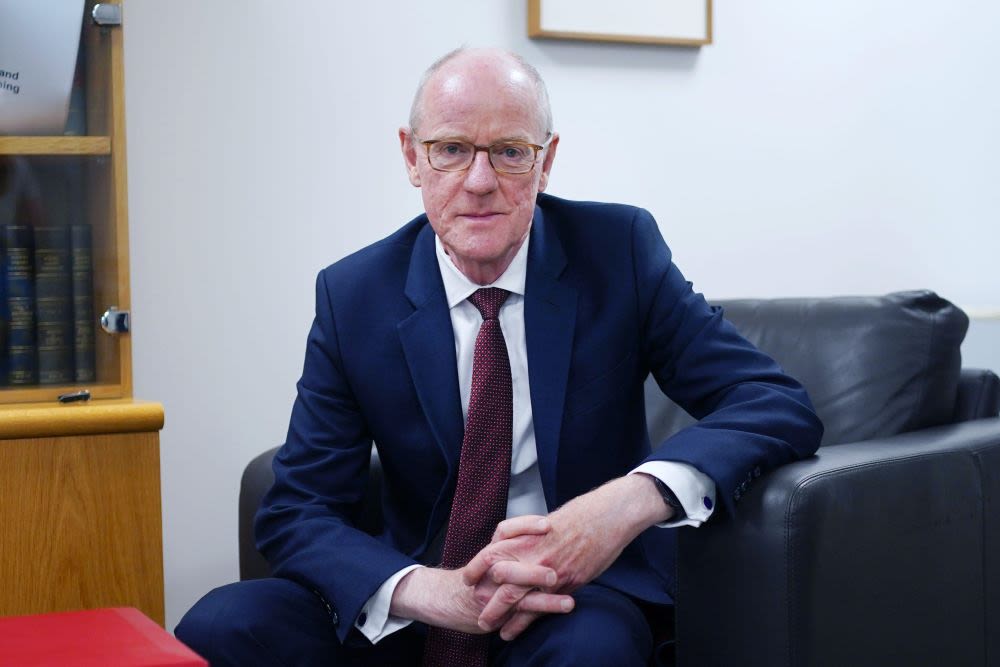Gibb, who served as schools minister for a total of 10 years during recent Tory administrations and was a Conservative MP for nearly three decades, has expressed concerns about his party’s lack of reflection following its heavy general election defeat last year.
Speaking to PoliticsHome during the Conservative Party conference in Manchester, where leader Kemi Badenoch faces pressure to demonstrate that the party can recover from its devastating July 2024 defeat, Gibb said the Conservatives have failed to properly analyse what went wrong while in power.
To kick off the conference, Badenoch confirmed that if elected prime minister, she would withdraw the UK from the European Convention on Human Rights (ECHR) as part of a policy aimed at tackling illegal migration. She described this decision as one not taken lightly.
However, Gibb argued that the UK should be leading efforts to reform certain aspects of the ECHR rather than pursuing what he sees as a superficial solution by simply leaving it altogether. He criticised what he believes is a Tory strategy overly focused on culture wars and insufficiently concerned with the everyday lives of voters.
“The party must get back to first principles and ask itself: what does the Conservative Party actually stand for?” Gibb told PoliticsHome. “There is still too much focus on culture wars in the narrative, and we are too responsive to what the newspapers are talking about. While it may stir up emotion, it’s not going to relate to economic growth or helping young people get on the housing ladder.”
He stressed that the Conservative Party should be analysing both the successes and failures of the previous government, something he claims has not been done.
Having stepped down as an MP at the last election, Gibb was keen to highlight achievements during 14 years of Conservative rule, citing education—his particular area—as well as the economic approach taken following the 2008 banking crash.
Nevertheless, he warned the party that it cannot expect voters to simply be “cheerleaders for free markets” amid growing perceptions of unfairness. He urged current Tory MPs to be “far more radical” in addressing the problems facing the public.
Despondent about the current state of British politics, Gibb extended his criticism to all major parties. “The stuff of politics is solving the country’s problems, developing policies to tackle those problems,” he said. “But I don’t sense that that is where the focus is in the mainstream parties here. Instead, it’s on other peripheral issues.”
He added: “[Mainstream parties] have become too cynical, too obsessed with themselves, too obsessed with the media, and they’ve stopped doing the fundamental thinking about our country and the problems that real people face every day.” This, he suggested, is why politics in the UK is moving towards the extremes.
Writing in The House last week, political scientist Rob Ford warned that the threat facing the two main parties—the Conservatives and Labour—is the greatest it has ever been. “A majority of those with a preference are now telling pollsters they will back someone other than Labour or Tory. That’s never happened before,” he wrote.
Gibb, regarded as a quietly influential figure within recent Tory governments, helped shape much of what is taught in schools today and is praised even by some critics for his passion for education. He has recently published a book, *Reforming Lessons*, reflecting on his many years as schools minister.
He is particularly concerned about the use of artificial intelligence (AI) in classrooms and its potential long-term impact on children’s development. Gibb disagrees with advice issued by exams regulator Ofqual regarding how students should use AI in coursework and wants young people to be warned against employing the technology in their homework.
Gibb is also critical of the Labour-led Department for Education’s current direction, claiming that both the curriculum and assessment review and the Children’s Wellbeing and Schools Bill risk undermining his reforms, which focused on embedding a knowledge-rich curriculum.
Additionally, he does not support lowering the voting age to 16. PoliticsHome reported in February that most teachers believe the curriculum currently fails to provide sufficient political education for young people to meaningfully participate in elections. Recent reports suggest that the curriculum and assessment review aims to address this issue.
However, Gibb said that such a proposed addition only underscores why lowering the voting age was a mistake in the first place.
“If you’re saying [votes at] 16, but we don’t think they’re ready, so we need to adapt schools to make sure they are ready—it just makes the point for you,” he argued. He added that once the voting age is lowered below 18, the cutoff becomes arbitrary. “I see no difference in arguments between 14 and 16,” he said.
He also warned of the risk that teaching politics in schools can be biased, depending on the teacher, and that with the best intentions, it is difficult to avoid bias entirely.
At the Conservative Party conference in September, Reform UK chairman Zia Yusuf described schools and universities in the UK as “indoctrination camps.” When asked what Gibb thinks would happen if Nigel Farage became prime minister, he responded: “He won’t be able to deliver [on] the promises, and you add to the disillusionment that got him there.”
https://www.politicshome.com/news/article/tories-focusing-on-culture-wars-too-much-says-nick-gibb

